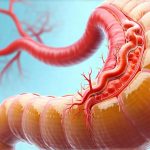Digestion is fundamental to life, enabling us to extract essential nutrients from the food we consume. It’s a complex process involving mechanical breakdown (chewing) and chemical digestion, facilitated by a team of enzymes. These enzymes are biological catalysts that speed up chemical reactions in the body, specifically breaking down large molecules into smaller, absorbable units. Without adequate enzyme function, the digestive system struggles to efficiently process food, potentially leading to discomfort and impacting overall health.
The stomach is often viewed as simply a holding tank for food, but it plays a crucial role in initiating digestion. It’s here that both mechanical mixing with gastric juices and initial chemical breakdown begin, setting the stage for further processing in the small intestine. Understanding how digestive enzymes contribute to this process within the stomach is vital to appreciating its function and potential areas of concern.
The Stomach’s Digestive Landscape
The stomach isn’t just a passive receiver of food; it’s an active participant in digestion, primarily through the production of gastric juices. These juices contain hydrochloric acid (HCl) which creates a highly acidic environment essential for activating certain enzymes and breaking down proteins. Alongside HCl are various enzymes, notably pepsin, which is the primary enzyme responsible for protein digestion within the stomach. This initial breakdown prepares proteins for further digestion in the small intestine.
The acidic environment also helps to kill harmful bacteria that may be present in food. The interplay between acid and enzymes ensures efficient and safe processing of ingested material. It’s a delicately balanced system, where disruption can have noticeable consequences.
Enzyme Specificity & Function
Enzymes are remarkably specific in their actions. Pepsin, for instance, focuses almost exclusively on breaking down proteins. Other enzymes like lipases (for fats) and amylases (for carbohydrates) operate primarily further down the digestive tract, in the small intestine, where conditions are more suitable for their function. The stomach’s main enzymatic contribution is protein digestion via pepsin, initiating a crucial step in nutrient extraction.
Pepsin: Protein Digestion’s Pioneer
Pepsin isn’t produced in its active form. Instead, it begins as pepsinogen, an inactive precursor secreted by chief cells in the stomach lining. The highly acidic environment created by HCl converts pepsinogen into its active form, pepsin. This activation is a protective mechanism preventing self-digestion of the stomach itself. Once activated, pepsin breaks down proteins into smaller peptide chains, making them easier to digest later on.
The efficiency of pepsin depends heavily on maintaining an acidic pH. Reduced acidity (hypochlorhydria) can impair pepsin’s activity, hindering protein digestion and potentially leading to digestive discomfort or nutrient malabsorption. This highlights the interconnectedness of stomach acid production and enzyme function.
Factors Influencing Enzyme Activity
Several factors can affect the efficiency of digestive enzymes in the stomach. Age is one consideration, as enzyme production may naturally decline with age. Dietary habits also play a role; a diet lacking essential nutrients might impact enzyme synthesis. Stress levels are another factor to consider, as chronic stress can disrupt digestive processes and potentially reduce enzyme secretion.
Furthermore, certain medications, like proton pump inhibitors (PPIs) used to reduce stomach acid, can inadvertently affect enzyme function by altering the gastric environment. This underscores the importance of understanding potential interactions between medication and digestive health.
Recognizing Potential Imbalances
While it’s difficult to directly assess enzyme levels without medical testing, there are indicators that may suggest imbalances. Persistent bloating, gas, indigestion, or undigested food in stool can sometimes point to insufficient enzymatic breakdown of food. However, these symptoms can have numerous causes and don’t necessarily equate to an enzyme deficiency.
A comprehensive evaluation by a healthcare professional is essential for accurate diagnosis and appropriate guidance. Focus should be on supporting overall digestive health through lifestyle choices such as mindful eating, stress management, and a balanced diet rich in nutrients.
Ultimately, the stomach’s ability to effectively utilize digestive enzymes is paramount to healthy digestion. The delicate balance between acid production and enzymatic activity ensures that food is properly broken down, maximizing nutrient absorption and minimizing discomfort. By understanding these processes and adopting supportive lifestyle habits, we can promote optimal stomach health and overall wellbeing.


















